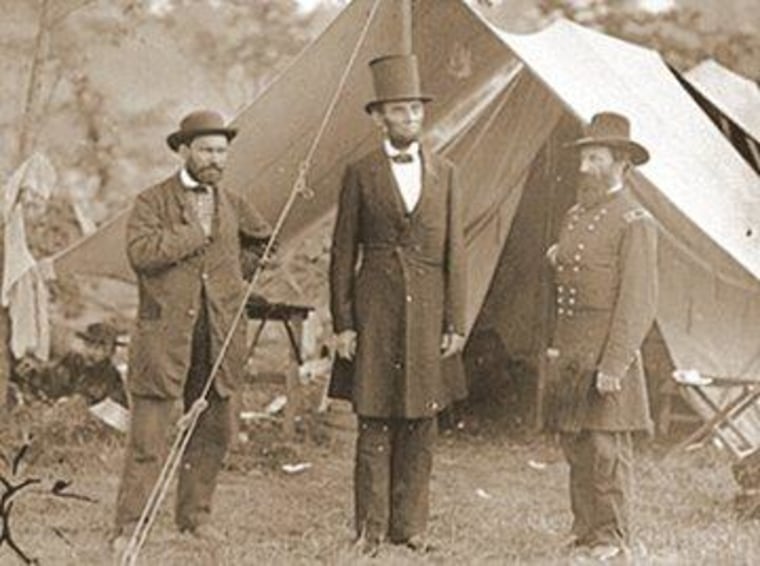About a week ago, Robert Schlesinger reported on a bill in Montana's state legislature that would have "forbidden Big Sky law enforcement from enforcing any new assault weapons ban or ban on high capacity magazines," even if such a law were passed by Congress. In effect, a majority of Montana state lawmakers said they want to be able to nullify a federal law they don't like.
In this case, the Montana bill was largely pointless -- a law that doesn't exist can't be rejected -- and was vetoed by Gov. Steve Bullock (D) anyway. But the effort was a reminder about a larger, rather terrifying trend: a growing number of state Republican policymakers consider nullification a legitimate use of state power.
For context, it's worth remembering that there was a rather spirited debate in the mid-19th century over whether states could choose to ignore federal laws. The debate was resolved by a little something called the U.S. Civil War -- those who argued in support of nullification lost.
And for the last several generations, that was that. But as Republican politics has grown increasingly radicalized in recent years, the discredited legal principle has started to move from the outer fringes of American life to state capitols. Consider this story out of Tennessee this week, for example.
The state House and Senate speakers have agreed to have a joint committee conduct hearings over the summer and fall on federal government laws and executive orders that may have exceeded constitutional authority, Sen. Mae Beavers, R-Mount Juliet, told colleagues Tuesday.Beavers' announcement came after declaring she would not push for passage of the "Balance of Powers Act" (SB1158), which would have set up a joint legislative committee to determine which federal laws should be nullified in Tennessee by the General Assembly.
Not to put too fine a point on this, but there's nothing to discuss -- state lawmakers can't pick and choose which federal laws they'll honor. But instead of realizing this basic tenet of modern American law, Tennessee will actually hold hearings on a concept that is, in the most literal sense, radical.
And it's not just Tennessee.
As Schlesinger noted in his report, some states are looking to nullify gun laws that don't yet exist; West Virginia is thinking about nullifying federal regulations on coal mining; and Mississippi, like Tennessee, is eyeing the creation of a nullification committee to pare down federal laws the state doesn't like.
Let's also not forget that in North Carolina, there's pending legislation that says the First Amendment doesn't apply to the state, federal courts can't determine what's constitutional under the U.S. Constitution, and North Carolina has the right to declare its own state religion.
If we broaden the context a bit, we can even look at the anti-abortion measures recently approved in North Dakota and Arkansas. Lawmakers were well aware of the fact that these bills are unconstitutional under existing Supreme Court precedent, but they decided it didn't matter.
It's my sincere hope that this is just a bizarre fad among radicalized Republicans, and to borrow a phrase, the "fever" gripping GOP politics will soon fade without incident. Chances are, cooler heads will prevail and these various nullification efforts will fade away, left to become a punch-line among future historians marveling at the far-right hysteria of the Obama era.
But I'd lying if I said this isn't disconcerting and more than a little alarming.
